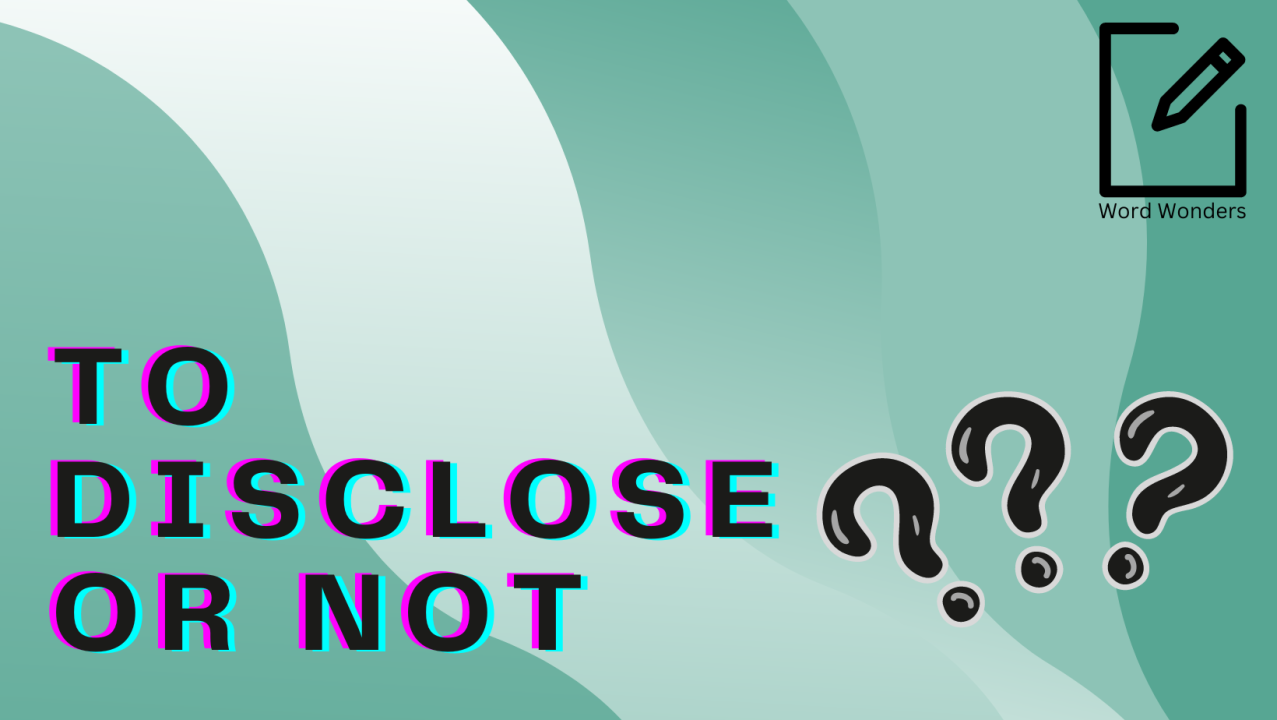
Why I disclosed my dyslexia?
Our journey is our own firstly!
Although, I am sharing with you why I've decided to speak about my dyslexia so openly, I completely respect and understand people who decide to keep their personal situation to themselves. I was one of them.
Why did I used not to disclose? Stigma! Years of it, in fact! Negative reaction from my family, from my peers, from friends has always made me shy away from talking openly about it. I've even had family members challenge my dyslexia, although I have a diagnosis. A very close family member once told me: "you are too smart to be dyslexic!"
Dyslexia has nothing to do with your intelligence.
Numerous times has my dyslexia been belitted by sentences like:
"oh! We are all a bit dyslexic aren't we?"
or again
"Stop finding excuses for your spelling mistakes and just concentrate."
I was almost turned down from the college I wanted to go to. My report cards from a young age really reflected the academic difficulties I had with reading and writing.

I initially thought that one report card said, Marilyn should really try reading and practicing dictation a bit more this summer, but taking a quick look, each and every report card mentioned my spelling difficulties and how that impacted the rest. Being repeated over and over again how you are bad at something can really play on your confidence.
The first time I got support was when I was a young adult who had somehow managed to get by. One thing led to another, and now here I am: a lot more confident than I once was.
One day, I came across a book: the dyslexic advantage and it was a pivotal moment for me. I strongly encourage you to read it if you haven't. The book helped me learn that not only were there clear difficulties with dyslexia but there were also hidden strengths. I eventually started to hone some of these skills and also started writing down some mistakes I made as they were funny. I thought it could be interesting to change the perceived negative views around dyslexia by writing a blog about some of the silly mistakes. I've never got around to doing it, but maybe one day I will. (I still write down all my mistakes)
As time went by, talking openly about my dyslexia became more natural in my personal life, but not at work. That is until one day, I saw how it affected my work both positively and negatively. As a dyslexic, I have the ability to recognize patterns quite easily and there was clearly a pattern with communication difficulties that I needed to address. It all changed in a blink. I started to speak about my dyslexia and how that could impact my communication, asking colleagues to help me work on this. I was in an environment that allowed this type of openness luckily.
Today, I choose to disclose my dyslexia because being aware of my strengths and limitations helps me be a better manager. I encourage open dialogue by talking openly as well which is another plus. Self-awareness is huge to me: understanding the impact and how it may affect certain situations is key. Talking about my neurodivergence always allows me to explain my specific needs easily as well as possibly reduce potential pitfalls (miscommunication, misunderstanding, etc.)
It reduced my stress. Why? Because I no longer had to wear a mask and I could be myself and own my strengths/limits. I used to stress when sending emails, filling forms and speaking to people I didn't know. I still do... but a lot less because I am open about my limits, difficulties and sometimes hidden strengths!
When you disclose your limitation, I've also realized that you often time find people with similar walks of life. I've been lucky to create a support network around me and I feel a bit less lonely.
Finally last but not least, I feel like I am lucky enough to be in a situation where I can disclose and by sharing, I am hoping to raise awareness, reduce stigma, create advocacy and help others in their journey and potentially help someone feel less alone like it was the case for me.
Remember disclosing your neurodivergence is entirely up to you. Before deciding whether to disclose or not, take your time. Gather information, and trust your instincts. I'd also encourage you to make a list of pros and cons to help you in your decision to disclose or not. Your well-being should be a priority in your decision making!
P.S, if you see some mistakes, welcome to my dyslexia. Feel free to let me know!
Chercheure doctorante et consultante en gestion de la neurodiversité
8moThe bias and stereotype threat is real and has been empirically documented in the scientific community. It needs to be adressed which is why I do what I do. Thank you for sharing your journey. 😊
Head of Marketing - Texthelp - Committed ERG member. Passionate about DEI, Neurodiversity and Inclusive Workplaces
8moThanks for sharing Marilyn. This is such an important topic for us all